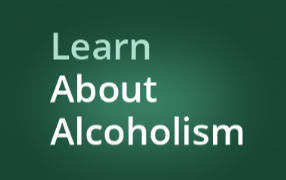Is There an Alcoholism Cure?
Is there an alcoholism cure? Medical experts say no. Instead, the model is like that for other chronic diseases-such as diabetes, which can be successfully treated but not cured.
Treatments vary, but in order to work they must address both the physical and psychological addiction to alcohol.
Most important, in order to be successful the alcoholic must have a strong desire to stop drinking. Ceasing to drink can be traumatic, both to the body and to the mind.
Physical symptoms of alcoholism occur when someone who has been drinking heavily for weeks or months decides to stop drinking suddenly.
These symptoms range from the mild (shakiness and sweating) to the severe (DTs, or delirium tremens). Unfortunately, the more frequently a heavy drinker tries to quit, the worse the physical symptoms can become each time.
Warning signs of alcoholism include: Decreased inhibitions An inability to function well at work or home Frequently drinking in the morning Repeated blackouts when drinking Alcohol odors on breath, body, or clothing Isolation from friends and family Loss of interest in hobbies or favorite activities Drinking more than one to two drinks a dayfor women, and more than three to four drinks a day for men
Withdrawal symptoms may be psychological or physical. Physical withdrawal symptoms include: agitation tremors sweating nausea vomiting Severe withdrawal symptoms last about 1-2 weeks, but less severe ones can continue months after quitting.
The psychological addiction to alcohol is more difficult to define. There are many factors that influence a person’s decision to drink, either occasionally or habitually.
Such factors may include :
- genetics,
- stress levels,
- anxiety around people and social situations,
- depression,
- low self-esteem and lack of motivation.
The upside for heavy drinkers who stop is that once they get past the withdrawal symptoms (the physical part), their bodies begin to heal.
Physical recovery is relatively straightforward within the first six months but damage to vital organs like the liver, heart and brain can take years to fully heal. Alcoholics who quit drinking may experience some improvement in overall health, including weight loss, better digestion and stronger immunity.
However, chronic drinkers can’t expect their digestive systems to work as well as people who don’t drink alcohol at all.

Medical experts recommend that drinkers stop drinking under the supervision of a doctor. Doctors can prescribe medicine that can help control the shakiness and anxiety that often accompany withdrawal.
One of the most intriguing aspects of physical addiction is the discovery that excessive drinking can trigger a biological response in the brain that ultimately results in a pleasurable sensation. In addition, hormones called endorphins may be implicated in alcohol craving.
Treatment Options For an Alcoholism Cure
The drug naltrexone, although not an alcoholism cure, has been approved to help block the receptors for endorphins, thus helping the patient undergoing treatment to maintain sobriety. A new drug called acamprosate, approved by the FDA in 2004, seems to reduce the severity of delirium tremens and alcohol withdrawal symptoms. It is still too soon to know if it will be effective long-term.
Buprenorphine (trade names: Subutex, Suboxone), which blocks cravings for alcohol much like methadone does for heroin addicts, has been shown at lower doses to help treat alcoholism. It is administered as an under-the-tongue spray or pill; higher doses are prescribed for opiate addiction recovery.
A drug that has been on the market for years, disulfiram (Antabuse), affects the metabolism of alcohol in the liver. A patient taking this drug who subsequently drinks can experience severe adverse consequences, including death.
These and other medications are most effective when combined with treatments that address the psychological side of the addiction.
Joining an organization such as Alcoholics Anonymous (AA), described as a “worldwide fellowship of men and women who help each other to stay sober,” can provide comfort, encouragement, and a safe environment in which to explore the ramifications of the disease. It also provides the addict with a sense of “family” with whom to share experiences.
In addition, patients can seek help in treatment centers, many of which offer a wide array of programs that seek to control behavior without promising an alcoholism cure.
Relapse is not uncommon among those under treatment. The biological, psychological, and social pressures often overcome the patient’s best intentions.
Treatment programs that include cognitive behavior treatment, in which the patient is trained to recognize and deal with the “triggers” that compel him or her to drink, can help the patient withstand the many temptations to resume dangerous habits.
An alcoholic’s family is also advised to attend such programs, where they can learn how best to help their loved one.
Conclusion:
Although not curable, alcohol addiction is a treatable disease that affects millions of Americans every year There is a long road ahead of a person who has been addicted to drugs or alcohol but the path begins with the first step toward seeking help. The overall prognosis for recovery varies depending on the severity of the alcohol addiction, which is determined by a variety of factors including age at onset, duration and frequency.
Recovery takes time; it does not happen overnight. With treatment, however, an alcoholic can reclaim his or her life and return to optimal health. If you are ready to quit alcohol, help is here. Please contact a dedicated treatment provider today!

I am a Mental Health Counselor who is licensed in both New York (LMHC) and North Carolina (LCMHC). I have been working in the Mental Health field since 2015. I have worked in a residential setting, an outpatient program and an inpatient addictions program. I began working in Long Island, NY and then in Guelph, Ontario after moving to Canada. I have since settled in North Carolina. I have experience working with various stages of addiction, depression, anxiety, mood disorders, trauma, stages of life concerns and relationship concerns.
I tend to use a person-centered approach which simply means that I meet you where you are and work collaboratively to help you identify and work towards accomplishing goals. I will often pull from CBT when appropriate. I do encourage use of mindfulness and meditation and practice these skills in my own life. I believe in treating everyone with respect, sensitivity and compassion.
I recognize that reaching out for help is hard and commend you for taking the first step. We have professionals available who would be happy to help you move closer to reaching your goals related to your drinking concerns. You may reach these professionals by calling 877-322-2694.
